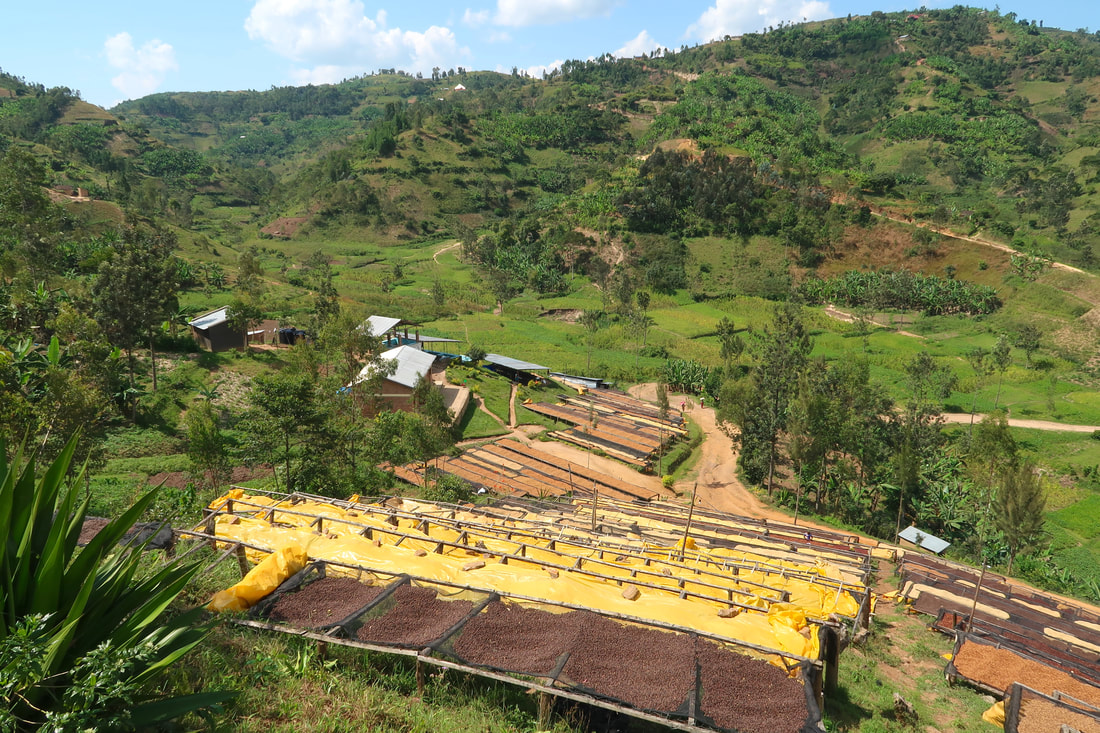Instead, Rwanda's future is much brighter than that of its neighbour. With its high altitude, volcanic soil, and heirloom Arabica bourbon coffee plants, Rwanda is, in many ways, an ideal country for growing specialty coffee, as is Burundi as well. Despite this, and the main difference between both countries coffee-wise, is that the Rwandan government has liberalized the previously state-controlled coffee industry in an effort to rejuvenate the fragile post-genocide economy. The goal: to develop a more profitable and higher-quality specialty coffee export sector. Unfortunately, this has not happened as efficiently in Burundi.
|
Why would you prefer one over the other, if they are only separated by an imaginary border? A coffee grown in northern Burundi has exactly the same microclimate, varietal, process and terroir as one from southern Rwanda. There is no difference other than the name of the origin until this point of the production process, although there are many differences in various aspects. Both economies are overwhelmingly agricultural, and widely diversified farming is practiced throughout their territories. Arabica coffee is the main commercial crop and constitutes the main export of both countries. Being much more important in terms of total foreign exchange earnings for Burundi than for Rwanda, because the latter economy is more developed and diversified. Burundi coffee farmers have always received much lower prices than farmers in Rwanda. For example, today the price a farmer in Rwanda receives for his cherry is 50% higher than the price a farmer in Burundi receives. Land is a major limiting factor in rural Burundi, forcing farmers to prioritize food production over coffee. The goals of the coffee growers are not similar to those established by the government. For them, the main objective is to survive.
Instead, Rwanda's future is much brighter than that of its neighbour. With its high altitude, volcanic soil, and heirloom Arabica bourbon coffee plants, Rwanda is, in many ways, an ideal country for growing specialty coffee, as is Burundi as well. Despite this, and the main difference between both countries coffee-wise, is that the Rwandan government has liberalized the previously state-controlled coffee industry in an effort to rejuvenate the fragile post-genocide economy. The goal: to develop a more profitable and higher-quality specialty coffee export sector. Unfortunately, this has not happened as efficiently in Burundi.
0 Comments
Leave a Reply. |
Archives
July 2024
Categories
All
|



 RSS Feed
RSS Feed